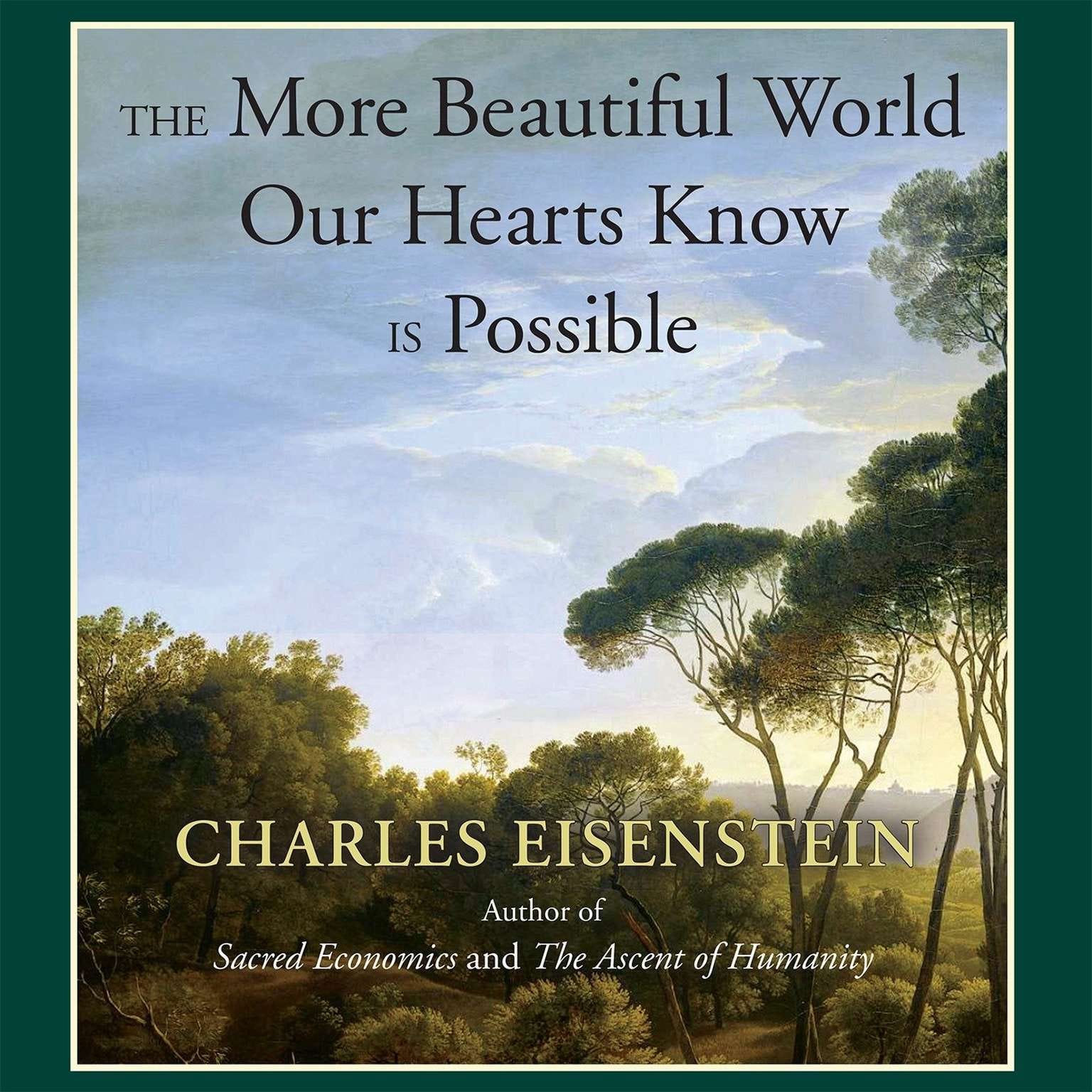A better world will come into view

“We construct a cubicle for ourselves and think that is our life.” Zach Bush MD
We believe that the world as we see it is real, but what if it isn’t? What if our society, our economy, our values, and all the structures we live by are only narratives, stories we tell each other? What would we do without the stories — most of them untrue — that control our lives?
We’re about to find out. As UN Secretary General Antonio Guterres recently told world leaders, “Covid-19-has been likened to an X-ray, revealing fractures in the fragile skeleton of the societies we have built. It is exposing-fallacies-and-falsehoods-everywhere: the lie that free markets can deliver health care for all, the fiction that unpaid care work is not work, the delusion that we live in a post-racist world, the myth that we are all in the same boat.”-
Covid-19, the Depression and the rebellions against police violence, are indeed waking people up. All the old narratives, like scarcity, race and individual separateness no longer make sense. How can we believe wealth is based on merit and hard work, when workers classed as essential are paid minimum wage, while billionaires get free government bailouts? How can health care, housing, and food depend on jobs that don’t exist?
Stories are Shackles
The old stories have been revealed as shackles that more powerful people put on us. The rules that leave some people in the streets, others in prison, others in mansions; the ideas that bound our parents, their parents, and everyone for 1000 years are going down in flames. As travel writer Kristin Wilson puts it, “The pandemic has obliterated our old societal paradigm and shattered what we thought we knew about life.”
Many folks are terrified, because we all need some order in our lives. But scary as it is, when we see through the narratives, we will be free. What will that be like: chaos, anarchy and poverty, or a new future with new narratives that bring us together?
Can you imagine living without scarcity, without enemies or greed? It might not be as radically different as it sounds. When we’re free of narrative shackles, we’ll probably do a lot of the same things we do now. We’ll still have to farm, make and fix things, and take care of each other. We’ll just work in a happier, saner, gentler way.

Christian economist Lynne Twist, author of The Soul of Money, says there are three myths about wealth that distort our lives: scarcity, more is better, and the permanence of current social relations. She says the opposites are true. “There is enough. More is not better. Our drive to enlarge our net worth turns us away from discovering and deepening our self-worth…Our behavior is not permanently fixed; we can choose to act differently.”
When we recognize the abundance the world is trying to give us, we won’t have to work so hard or consume so much. We could relax, work to make the world better, and enjoy life.
Crisis Leads to Opportunities
Secretary-General Guterres said, “COVID-19 is a human tragedy but has also created an opportunity to build back a more equal and sustainable world.” Can we take the opportunity this crisis forces on us, and rewrite our society’s stories? It will be hard, but not that complicated, perhaps only two steps:
Step 1: Recognize that the social structures we take for granted: like who creates money, how money is distributed, who owns land and what ownership means, and how we should relate to each other are only narratives. They don’t come from Nature or from God. People created them, and people do them differently in different places and times.
Step 2: Create new narratives like distributing basic income to everyone. Mr. Guterres called for a New Global Deal “based on the rights and dignity of every human being, living in balance with nature, respect for the rights of future generations, writing off unfair international debts.” Other starter stories could be defining health care and housing as human rights. And who knows what other brilliant ideas liberated people might create?
A year ago, such scenarios would have sounded like a cannabis dream. How will the bankers, generals, lords and ladies of our world ever be persuaded to give up the narratives that bring them so much wealth and power? How could ordinary people, however many billions of us rise up, overcome the massive military force and institutionalized power of the ruling classes?
But COVID has enabled us to see past the invisible walls that imprison us. We can see that we don’t have to fight on their battlefield. All we have to do is change the narrative. When people see the more beautiful world that is possible, some of them will drop their guns, take off their helmets or their three-piece suits and join a new narrative that brings more love into their lives.

Do people really change like that? Individuals can. Psychologists tell me that therapy is the process of helping people to see their own narratives and let go of them. Therapists have so much work because people rarely let go of the stories that make them miserable, until they reach a level of pain they can no longer tolerate.
Could the same be true of a society, of a culture or all humanity? It sounds a huge project, but look around. Our social narratives are not only causing us pain; they are literally killing us. Every day, more people disbelieve the constant fear stories they are told about China, Russia, terrorism, crime, etc. We have been lied to for so long, about so many things, that ever-fewer people take our rulers’ word for anything.
When nobody believes the old stories, they will die. And we will have a chance to live. So, speak up. It’s not enough to mumble truth to power. Shout it out to everyone.
— — — — — — — — — — — — — — —
More on the society coming into view:
The More Beautiful World Our Hearts Know Is Possible and
Sacred Economics by Charles Eisenstein charleseisenstein.org
Animal, Vegetable, Miracle: A Year of Food Life Barbara Kingsolver
Reading, Writing, and Rising Up: Teaching about Social Justice and the Power of the Written Word Linda Christensen
— — — — — — — — — — — — — — — — — — — — — — — — — — — –
Thanks for reading! Follow me on Twitter or Medium.com @davidsperorn or on Facebook https://www.facebook.com/david.s.rn.3

Thanks David. The road is bumpy with many detours and blind alleys. We should not lose hope.
Another good article, David. I love that idea of a basic income for everyone, though again, breaking through the distrust between the nations is a necessity, and how do we do that?
It is a beautiful picture with very good lighting 😮 http://bbok999.cloudaccess.host
My name: Judson Killeen
Age: 18 years old
Country: Australia
City: Minjary
Post code: 2720
Street: 62 Wynyard Street http://aamsonline.org
I’m Karin and I live in Reutlingen Georgenberg.
I’m interested in Psychology, Hiking and Spanish art. I like travelling
and watching 2 Broke Girls. http://18trading.net